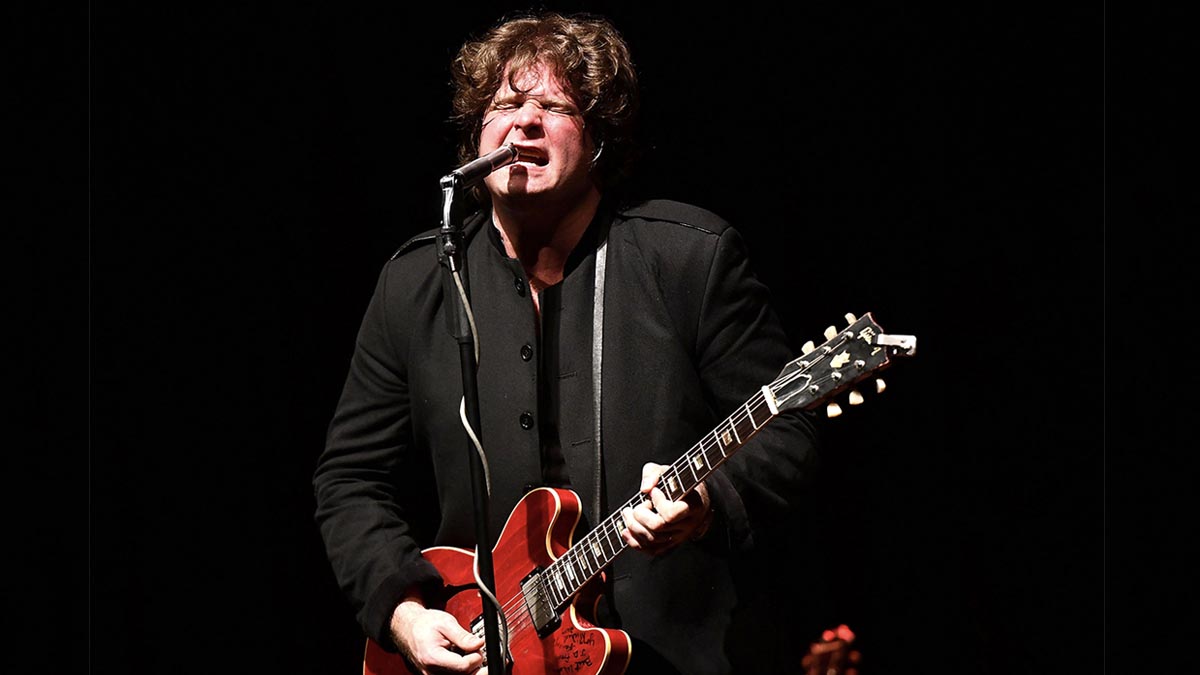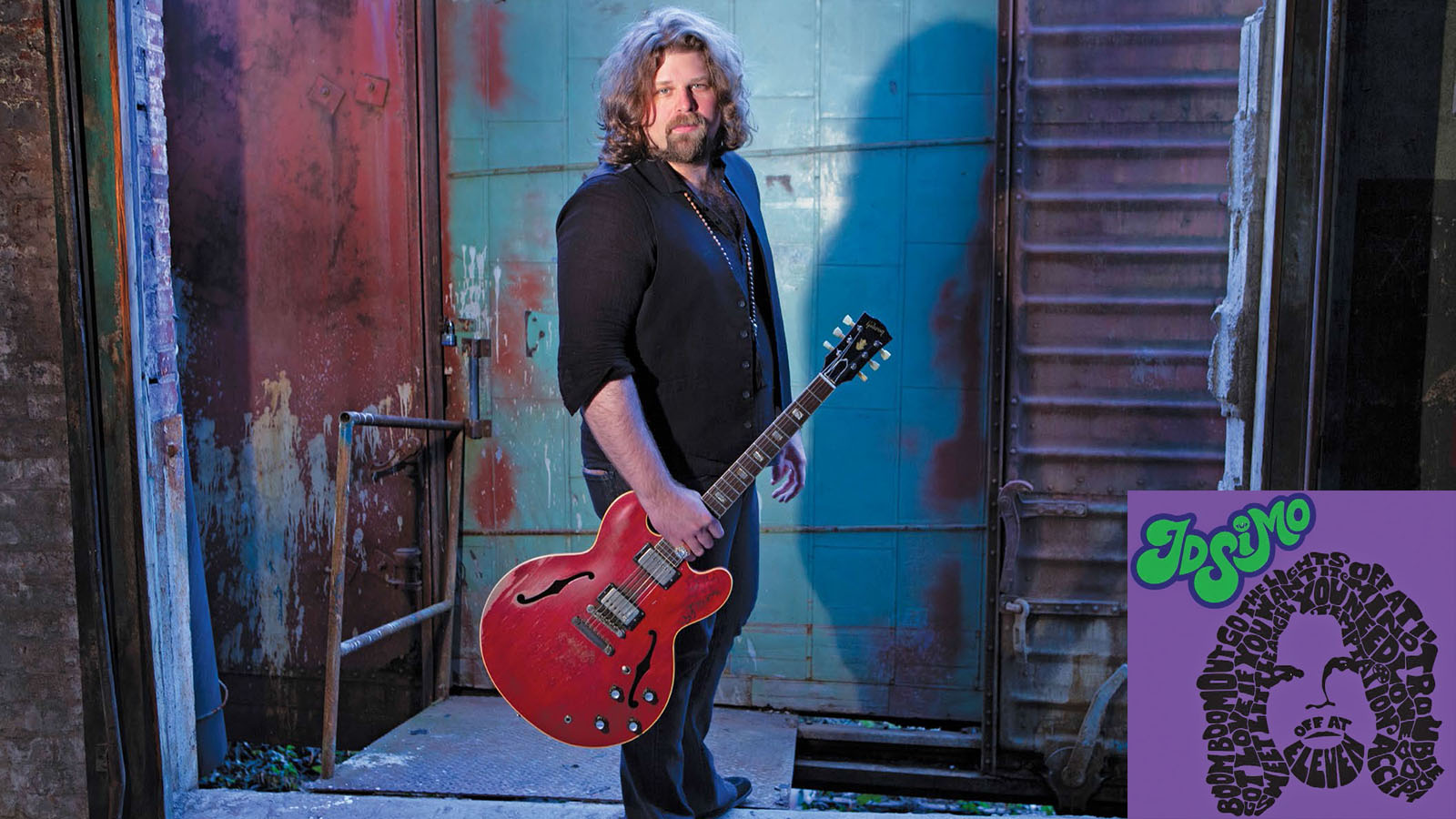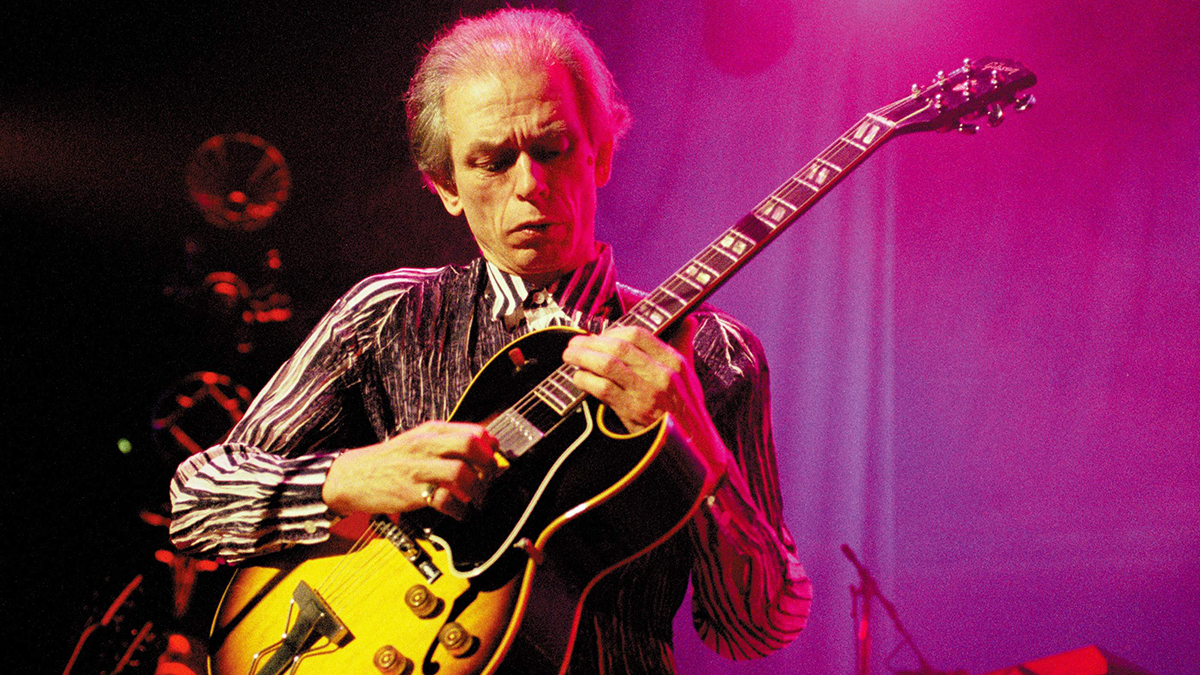JD Simo unpacks the legacy of Elvis Presley and reveals how he nailed Scotty Moore’s guitar tone for Baz Luhrmann’s new biopic
As sole guitar player on Elvis, JD Simo left no stone unturned in search of the gear to bring rock ’n’ roll history to life, but as he explains, it was a gig he had been waiting his whole life for

When working with producer Dave Cobb, guitarist JD Simo has learned to expect the unexpected. Cobb’s unconventional studio methods are the stuff of industry legend, and while the two are longtime colleagues and friends, Simo knows that every project will be different in sound and approach.
So it was when he began work on Elvis, the Baz Luhrmann biopic, which opens on June 24. From June 2018 until December 2021, while touring on his own, recording his third solo album, Mind Control (released November 2021), and during the pandemic, Simo, who is based in Nashville, was in and out of RCA Studio A, tracking for the film and soundtrack with drummer Chris Powell, keyboardist Philip Towns, and bassist Brian Allen.
“Dave called and said, ‘I’ve got this relatively big project that I’m involved in, and I want you to be a part of it,’” says Simo. “He said it was a movie about Elvis, and that got me very excited because that's how I learned to play guitar when I was 4. I was obsessed with Elvis Presley, and Heartbreak Hotel was the first song I learned to play.
“Other than that, he didn’t say much, which is typical with Dave. I rarely know what I'm getting into, or the scope of it, until I show up. Over the course of doing sessions every few months, it became very clear what a monumental task and big deal it was.”
Your work is entrenched in guitar solos and walls of sound. By comparison, with Elvis’s music, the guitars are a “less is more” approach. How did you go from one to the other over the recording timespan?
“First of all, I’m such a fan of Elvis’ music, but also the music of that period and the other stuff we recorded for the film. Sister Rosetta Tharpe, Arthur ‘Big Boy’ Crudup, Muddy Waters, B.B. King – all of that is a big part of my musical DNA.
The film was like fantasy camp for me, because I got to play dress up, musically, as these heroes of mine and really have fun
“Going in and working on stuff periodically for the film was like fantasy camp for me, because I got to play dress up, musically, as these heroes of mine and really have fun.
All the latest guitar news, interviews, lessons, reviews, deals and more, direct to your inbox!
“Because Baz is such a detail-oriented filmmaker, every aspect of the sonic chain – the equipment we used, obviously the parts we played, every element of trying to make it authentically correct – was encouraged and required.
“Early on in the process, for example, Dave and I went shopping for equipment because we needed specific sounds for specific elements, and for some of it, we did not feel we had the ample tools.
You own a lot of gear, and it’s an understatement to say that so does Dave Cobb. What else did you need? You had to cover the span of several guitarists. What did you use?
“We knew going into it that we were going to have a Scotty Moore setup, a James Burton setup, and then some others, like Tommy Tedesco, who played on some of the ’60s, stuff, and Reggie Young, who played on the From Elvis In Memphis album in ’69.
“The Scotty stuff was definitely the most daunting, and that's what Dave and I focused on first. We went to Carter Vintage Guitars in Nashville and picked up four or five archtop electrics they had from the ’50s. We went through each of them, trying to find one that we both felt really sounded like Scotty.

“We knew Scotty used a Gibson L5, a Super 400, and obviously a 295 in the earliest days at Sun, but rather than saying, ‘We need a 295, we need an L5,’ we got a bunch of different ones because we were looking for the sound. That's the important aspect. Sometimes you can achieve the sound without using exactly what somebody used.
“And quite contrary, you can a lot of times get the exact same gear that somebody used and it doesn't sound right. So we auditioned several different things, and it ended up being an old 1950s Gibson L5 – a ’56 or ’57 with flatwounds – that just had the sound.
“From an amplifier perspective, that was really tough, because Scotty used a Ray Butts EchoSonic custom amplifier. Those are not only incredibly rare, but also there’s nothing quite like them.
The parody of the tragic ending of his life, first and foremost, is very mean-spirited. They forget that he was a human being
“We tried Tweed Deluxes, I have a little Alamo, we tried a bunch of different amps, and we ended up using Dave’s ’65 Rickenbacker combo with a solid-state Echoplex from the 1970s. It sounded perfect, and that became the Scotty Moore setup for the entire movie.
“The James Burton stuff was probably the easiest, in that Dave has a beautiful 1956 Fender Esquire that sounds incredible plugged into his ’66 Super Reverb. Those two things sounded like James Burton, and so that was the rig. The Reggie Young and Tommy Tedesco stuff was generally the same, the Esquire and Super Reverb, because it suited that 1960s Telecaster-y, twanging kind of sound.”

“Yola plays Sister Rosetta Tharpe in the film, and I have this old Jazzmaster that is tuned to B that I tune down normally. Sister Rosetta tuned her guitar down a lot, sometimes a whole step and sometimes a step and a half.
“At least at one point in her career, she played an SG, but it had three pickups in it, so the middle position is an out of phase, weird, honky kind of sound. My Jazzmaster is wired out of phase, so even though I’m not using at all what she used, it sounded perfect into that same Rickenbacker amp that we used for the Scotty stuff.”
In an interview with Sound and Soul Online, you said something about Hendrix and Led Zeppelin that connects to Elvis: “The thing that is the least special about them is what has been mimicked and copied; the actual depth and what made them incredible, all the nuance, is not even noticed.”
What do you think people still do not understand about Elvis Presley's music?
“With Elvis, it’s even more superficial than in the case of Hendrix or Zeppelin. The parody of the tragic ending of his life, first and foremost, is very mean-spirited. They forget that he was a human being. In a way, that has overshadowed his greatness, more so than anything else, and that's even more tragic and more not okay.
“Elvis, like few other things in modern history, was a conduit for this incredible shift in both pop culture and art in general. At the core of it, he was just doing what felt natural to him, and so the importance and significance of his contribution is in many ways above and beyond.
“It has nothing to do with him and his daily life and what he was looking to do. I think that's probably part of the paradox that became such a heavy burden for him to bear, because at the core of it, he was just a guy who was singing and enjoying himself.
“The world changed from this post-World War II, very conservative era into what became the Baby Boomer era of the 1960s, and Elvis was the bridge that made it possible in one form or another.
“He was part of a very special time in this transfer of music, along with a lot of his compadres in that time – Jerry Lee Lewis, Fats Domino, Little Richard, the rock and roll era. But he was such a bigger star, and every great star that followed sort of follows in the footsteps of his path. I find it super-fascinating that he was genuinely the first to go through anything remotely like what he went through.
“I can’t speak for Baz Luhrmann, obviously, but I'm sure that part of the motivation of what they're looking to do with this film is to give a true picture of who and what Elvis was to a generation – or two or three at this point – that maybe think of Elvis impersonators or all these things that have nothing to do with what truly is amazing about this guy.”
In a quote accompanying the release of Mind Control, you describe the album as, “using the creative process for therapy and the fun of playing music,” and “a positive theme of growth, self-help, and also struggles with addiction and mental health.” How are music and guitar therapeutic for you?
“I started playing guitar when I was 4, and even before I started playing, listening to music was a beautiful escape. From my earliest memories, it's something I was able to go to to feel better about things I was not okay with. It was a way to escape reality into something that made me feel good. It’s the exact same for me today.
“That’s the universal truth of music. The added bonus when you write, create, or play music is there's this purging, like when someone learns to journal, or they go to the gym to work out stress. You're able to purge what’s negative, frustrating, hurtful – anything that is not joyful.
“The other thing is that it encompasses all of your emotions, and it’s addicting. It serves in a way that nothing else I've ever experienced in my life has the ability to do. When it’s really great, it’s such a euphoric feeling that there's no wonder to me why so many people in this line of work end up chasing addictions and stuff like that. It’s because the feeling is so great and it’s fleeting and you just want to stay there.”
The moments when I'm reminded that I'm not alone, that other people feel the same way, immediately help snap me out of that pit
“Music has certainly helped me live a happier, healthier life. It's a positive thing to go to to work out trauma, and if you create something that is passed on to somebody, maybe they hear it and think, ‘I'm not alone.’
“The thing with mental health is that when you're in the pit of it, you feel very alone, like you're the only person feeling it. But the truth is that we all feel it. It’s the human experience. At least in my path, the moments when I'm reminded that I'm not alone, that other people feel the same way, immediately help snap me out of that pit.”
Is your battle with depression? Anxiety? Panic?
“All of the above. Starting therapy four years ago was incredibly helpful. I also became very involved in ACA and Al-Anon, and both helped me tremendously.
“Like many people, I grew up in an environment that was very ‘stiff upper lip.’ You grin and bear it, and if you can’t handle it, you're not a man. It took understanding that there is help out there and things you can do to not only work out past trauma or things that need to be dealt with, but also to learn how to reprogram all of your hamster-wheel reactions to those things.
People get help and take medication for blood pressure, for diabetes. Well, there are things you can do for mental health, too
“There are programs where you get to know other people who are in the same situation and that give you a pathway to actually enjoying your life. It’s amazing.
“I would have sought it sooner, had I known that it even existed, but I'm just grateful that I found it when I did, four or so years ago. I talk about this all the time because we need to talk about it. People get help and take medication for blood pressure, for diabetes. Well, there are things you can do for mental health, too. The fact that it's still so taboo is just ridiculous.”
It’s no secret that Elvis had his struggles, and he had them during a time when this was even more stigmatized and taboo than it is today. During the sessions, did you feel a personal connection to Elvis, in addition to the musical one?
“Absolutely. The ongoing vibe of the sessions was from such a place of love and care. Baz’s intention was to do justice to a man who deserves it. He even said that multiple times when we were working.
“So many things have been filmed and written and done about Elvis in all different aspects of sensationalism, parody, ridicule, however you want to look at it. Baz wanted to do service to his greatness and give him proper respect. That was incredibly omnipresent.
“On top of that, all the sessions I did were at RCA here in Nashville, in the same facility where a lot of stuff we were recording had been recorded originally. We were in a room where that greatness came from. So yes, it was really easy to attach to it and do it from a loving, caring perspective.”
Mental health resources
Alison Richter is a seasoned journalist who interviews musicians, producers, engineers, and other industry professionals, and covers mental health issues for GuitarWorld.com. Writing credits include a wide range of publications, including GuitarWorld.com, MusicRadar.com, Bass Player, TNAG Connoisseur, Reverb, Music Industry News, Acoustic, Drummer, Guitar.com, Gearphoria, She Shreds, Guitar Girl, and Collectible Guitar.
